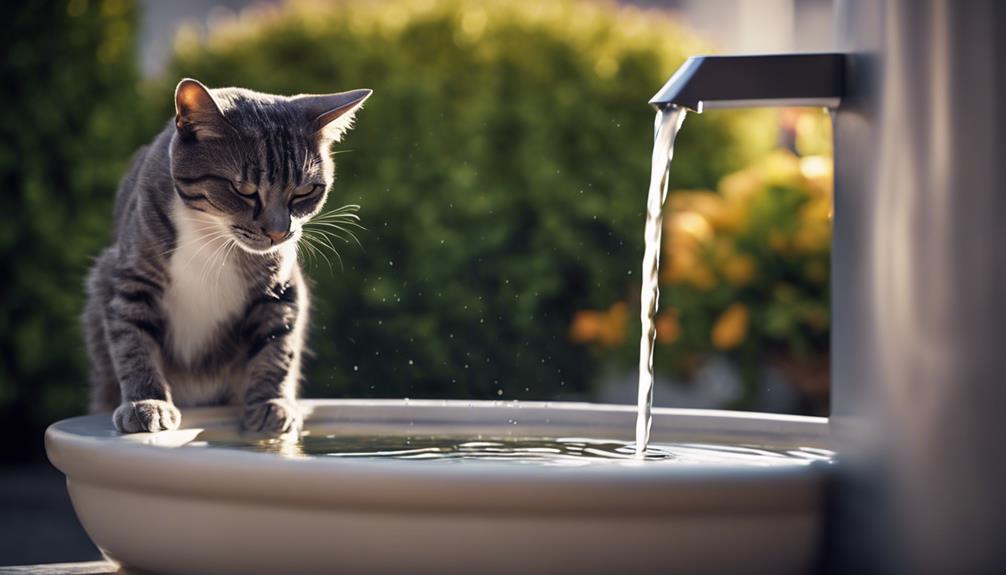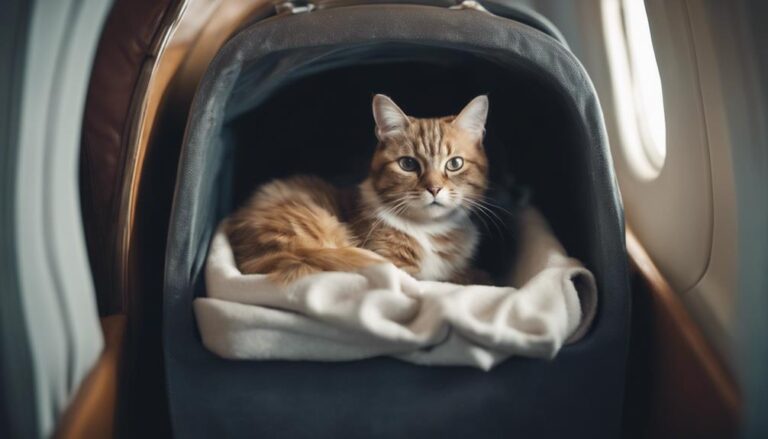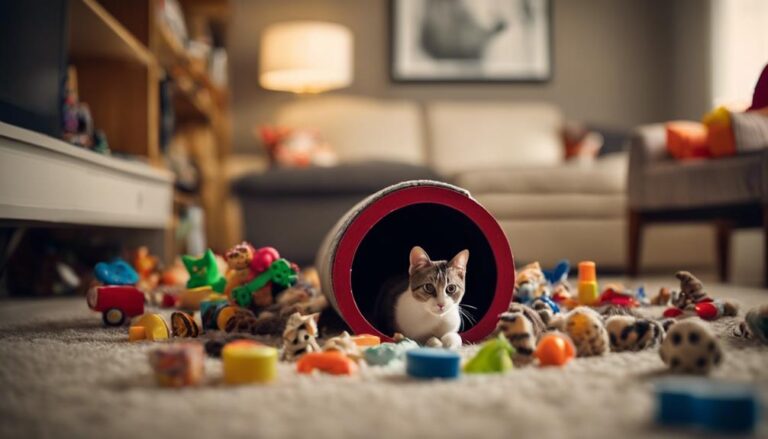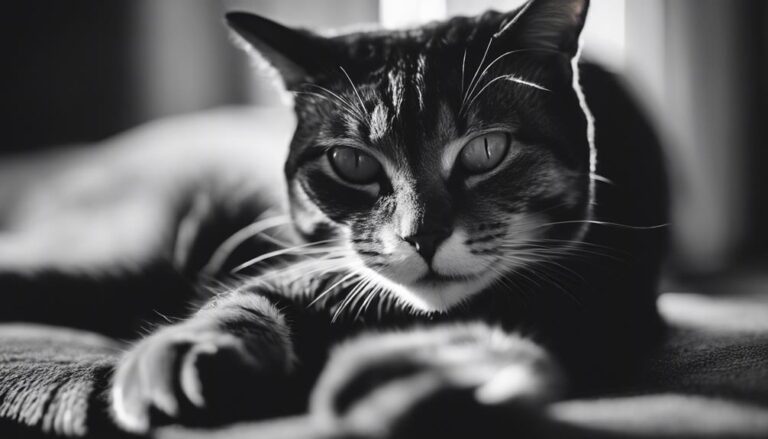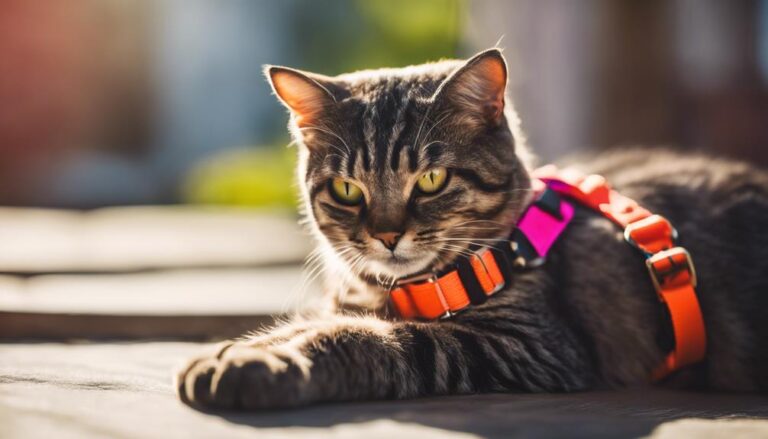Ensuring your cat stays properly hydrated is essential for their overall health. Understanding how much water your feline friend should drink can be a key factor in maintaining their well-being. By utilizing a cat water intake calculator, you can determine the ideal amount of water your cat needs daily. This information can provide valuable insights into promoting a healthy hydration routine for your beloved pet.
Importance of Cat Hydration
Ensuring your cat stays properly hydrated is crucial for maintaining their overall health and well-being. Water intake plays a vital role in supporting digestion, waste removal, and temperature regulation in cats. Without adequate hydration, cats can suffer from dehydration, which may lead to serious health issues such as kidney disease and urinary tract problems.
Monitoring your cat's hydration levels is essential for detecting early signs of health issues. Cats have a low thirst drive compared to other animals, so they may not always drink enough water on their own. It's important to provide easy access to fresh water sources to encourage regular drinking and prevent dehydration.
Calculating Cat's Water Needs
As you consider your cat's hydration needs, understanding how to calculate their required water intake is key to promoting their health and well-being. Cats typically need about 50-60ml of water per kilogram of body weight daily to stay hydrated.
The amount of water a cat needs can also be influenced by the type of food they consume. Cats on a wet food diet receive a portion of their water intake from the food itself, as wet food usually contains around 70% moisture. Conversely, cats on mainly dry diets may consume less water, which can increase the risk of kidney and urinary tract issues due to inadequate hydration.
To encourage your cat to drink more water, consider providing multiple water sources throughout your home and using small, wide bowls placed away from their food. Keeping track of your cat's water intake is crucial for ensuring they're receiving adequate hydration to support their overall health and well-being.
Monitoring Cat's Water Intake
To ensure your cat stays healthy, it's crucial to keep an eye on their water intake. Pay attention to how much water they're consuming each day and watch out for signs of dehydration or excessive drinking.
Daily Water Consumption
Monitoring your cat's daily water consumption is crucial for ensuring they stay properly hydrated. Cats typically need about 50-60ml of water per kilogram of body weight daily to maintain optimal hydration levels.
By keeping track of your cat's drinking habits over a 24-hour period, you can determine if they're meeting their hydration needs. It's important to note that cats on wet food diets may consume less water from their bowl compared to those on dry food, as wet food contains some level of hydration.
Recording and averaging your cat's daily water intake can help you compare it with the recommended levels and identify any potential signs of dehydration. If you have concerns about your cat's water intake or hydration, consulting a vet is advisable.
Hydration Signs to Watch
Keep an eye out for dehydration signs in your cat, such as sticky gums, sunken eyes, and lethargy. It's crucial to monitor your cat's water intake by observing any changes in their drinking habits. Record and average their water intake over 24 hours to accurately track hydration levels.
If you notice reduced skin elasticity in your cat, it could indicate dehydration, so consult a vet promptly. Increased water intake may signal underlying health issues that require attention. By staying vigilant and proactive in watching for these signs, you can help ensure your cat stays properly hydrated and healthy.
Signs of Dehydration in Cats
If your cat displays sticky gums, sunken eyes, or lethargy, these could be signs of dehydration. Reduced skin elasticity is another common indicator of dehydration in cats.
To check for dehydration, you can perform a simple skin pinch test – gently lift the skin between your cat's shoulder blades; if it doesn't snap back promptly, your cat may be dehydrated.
Dehydration in cats is a serious concern that can lead to various health problems. It's crucial to monitor your cat's water intake to prevent dehydration and maintain overall well-being.
Remember that the amount of water a cat needs can vary based on factors like age, size, diet, and activity level. Promptly addressing any signs of dehydration and ensuring adequate fluid intake are essential for your cat's health and vitality.
Enhancing Cat's Fluid Consumption
To help increase your cat's fluid intake, consider offering wet food with high moisture content. This can be an effective way to ensure that your cat stays hydrated throughout the day.
In addition to this, here are some more ways to enhance your cat's fluid consumption:
- Place water bowls in multiple locations: By having water available in various spots around the house, you can encourage your cat to drink more frequently.
- Consider using a cat water fountain: Cats are often attracted to running water, so a cat water fountain can entice them to drink more water throughout the day.
- Monitor your cat's daily water intake: Keep track of how much water your cat is drinking to ensure they're meeting their hydration needs based on their weight and activity level.
- Add flavored water or meat broth: Mixing water with a bit of flavor can make it more appealing to your cat and help increase their overall fluid intake.
Cat Water Fountain Recommendations
Consider exploring different cat water fountain options to find one that best suits your cat's preferences and your household setup. Cat fountains provide a flowing water source that can encourage cats to drink more water, especially if they've a preference for moving water over stagnant water in traditional bowls. By offering a variety of water sources, including fountains, you can cater to different cat preferences and potentially increase their water intake. Cat fountains come in various sizes and designs to fit different household settings, ensuring there's a suitable option for every home.
Regularly cleaning and maintaining cat fountains is crucial to uphold water quality and freshness. Stagnant water can harbor bacteria and debris, potentially discouraging your cat from drinking enough water. By keeping the fountain clean and the water fresh, you can ensure that your cat has access to a healthy hydration source. Choose a cat fountain that's easy to disassemble for cleaning to make this task more manageable.
Frequently Asked Questions
How Much Water Should My Cat Drink a Day Calculator?
You should aim for your cat to drink around 50-60ml of water per kg of body weight daily. Factors like diet and activity level can influence the amount needed. Monitoring water intake is vital for your cat's health.
How Much Water Should a Cat Drink in 24 Hours?
To ensure your cat stays hydrated, aim for 50-60ml of water per kilogram of body weight daily. Monitoring water intake over 24 hours helps assess hydration levels. Cats on wet food diets may drink less.
How Many Ml Should Cat Drink?
To keep your cat hydrated, aim for 50-60 ml of water per kg of body weight daily. Monitor their intake closely, especially if they're on dry food. Encourage enough water consumption and provide fresh sources. Keep your cat healthy and hydrated!
How Do You Measure a Cat's Water Intake?
To measure a cat's water intake, use a measuring jug or scale over 24 hours. Record and average the amount consumed. Cats should drink 50-60ml per kg of body weight daily for optimal hydration.

